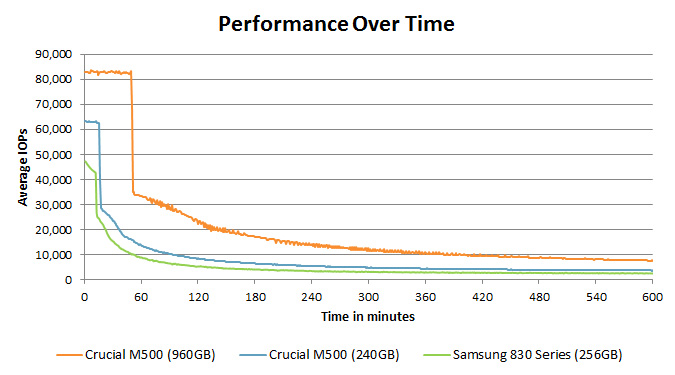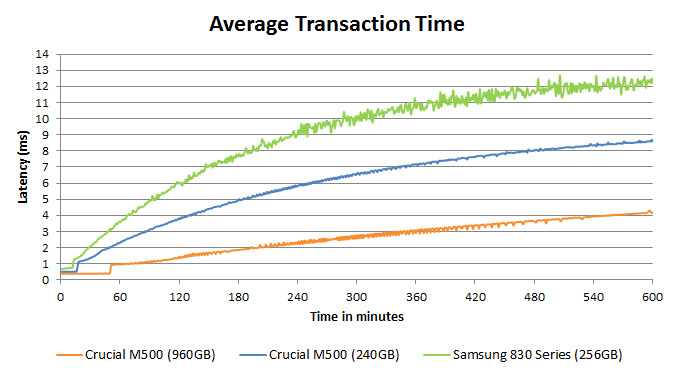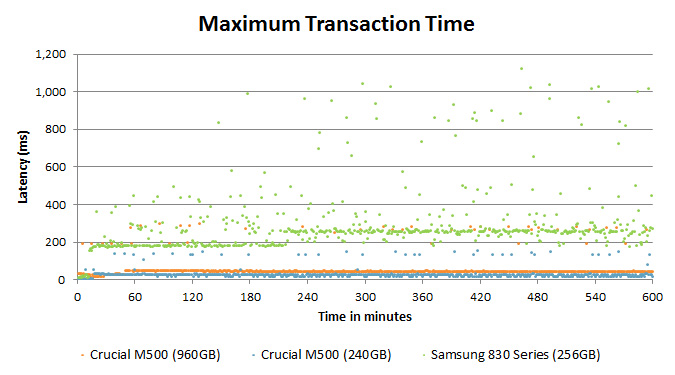Performance Consistency

To tell modern SSDs apart, we need to stress the drives over longer periods with more demanding workloads. In the above graph, each SSD is subjected to random 4K writes across the entire span of the drive at a queue depth of 32 for a full 10 hours. Bombarding the drives in this manner forces each SSD to run out of the free blocks that initially allow fast write times. The sharp performance drop off is attributed to increased write amplification, as the drives are having to perform read-modify-writes for randomly written data going through garbage collection.

Examining the average latency throughout the 10-hour 4K write provides a good look at the capabilities of each drive's garbage collection algorithms. As the drives run out of free blocks, the previous-generation Samsung 830 Series takes a large hit in terms of latency, the 240GB M500 is an improvement, and the 960GB M500 - armed with a large 1GB cache - is particularly impressive for a mainstream consumer drive.

Taking a closer look at maximum latency shows us how today's drives are evolving. Whereas the previous-generation Samsung 830 Series can be unpredictable at times, the Crucial M500 remains fairly consistent throughout the 10-hour run.









